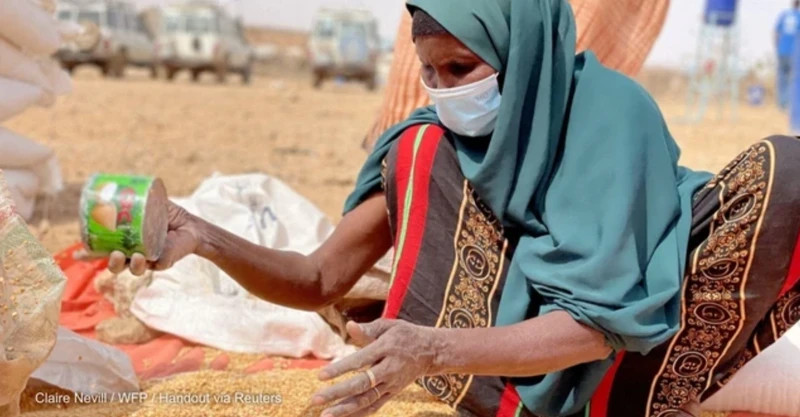People’s lives in many regions in the world are being devastated by famine, with the most catastrophic food crisis in Africa. About 18 million Sudanese people are experiencing life with food shortages every day. Meanwhile, food insecurity in Mali has reached an alarming level with about 7.1 million people needing humanitarian assistance in 2024. According to the Food and Agriculture Organisation of the United Nations (FAO), approximately 74.9 million people in the Horn of Africa are facing food insecurity and in need of urgent humanitarian assistance.
Worryingly, children are severely affected. A report by the United Nations Children’s Fund (UNICEF) said that more than 25% of children under 5 years old globally are living in severe food shortages, meaning that more than 180 million children are at risk of adverse effects on growth and physical development. The report states that serious food shortages among children are concentrated in about 20 countries, especially serious in Somalia, Guinea, Guinea-Bissau, and Afghanistan. The most worrisome situation is in Palestine, where 90% of children are living in severe food shortages due to the collapse of the food and health systems since the conflict in the Gaza Strip.
Analysts say that climate change and conflict are the two biggest factors causing hunger in the world today. According to United Nations Secretary General Antonio Guterres, conflicts have forced millions of people to evacuate and destroyed agricultural production infrastructure while climate change has increased extreme weather phenomena such as droughts, floods, and saltwater intrusion, causing food production declines, destroy crops, and change traditional agricultural and fishery exploitation methods.
According to the World Food Programme (WFP), about 70% of food-insecure people live in areas affected by conflict and violence. Meanwhile, the number of tense hotspots is increasing. According to the Peace Research Institute Oslo (PRIO) in Norway, the number of armed conflicts in 2023 was at its highest level since the end of World War II. In fact, 13 years after gaining independence, South Sudan is still mired in instability, pushing millions of people into severe food insecurity. The Israel-Hamas conflict also shows the devastating consequences of violence.
The United Nations warns that if the conflict continues, millions of Palestinians in the Gaza Strip are at risk of falling into serious famine. Accordingly, from mid-July, the number of Palestinians in the Gaza Strip facing level 5 famine - the highest level in the Integrated Food Security Phase Classification (IPC) system - could reach more than one million people, nearly half of Gaza’s population.
Along with conflicts, climate change is placing an increasing burden on the global food system, as floods, droughts and heatwaves are damaging crops from Europe to Asia and leading to famine in the Horn of Africa. Heavy rains from late March to April led to serious floods, especially in Kenya, Somalia, Burundi and Tanzania, causing loss of life and livestock, and destroying many areas of agricultural land. Meanwhile, according to the United Nations, millions of people in southern Africa could fall into serious famine during the upcoming lean season from October 2024 to February 2025, in the context that this region is facing a serious shortage of rainfall due to the El Nino phenomenon. Concerns about unfavourable crop conditions in food hubs are one of the reasons why FAO’s world food price index in May continued to increase for the third consecutive month.
Intertwining crises put the world at risk of missing the goal of eradicating poverty by 2030. In that context, United Nations Secretary General Antonio Guterres called on countries to act quickly to relieve pressure for the global food system, bringing a full life to all people.
















